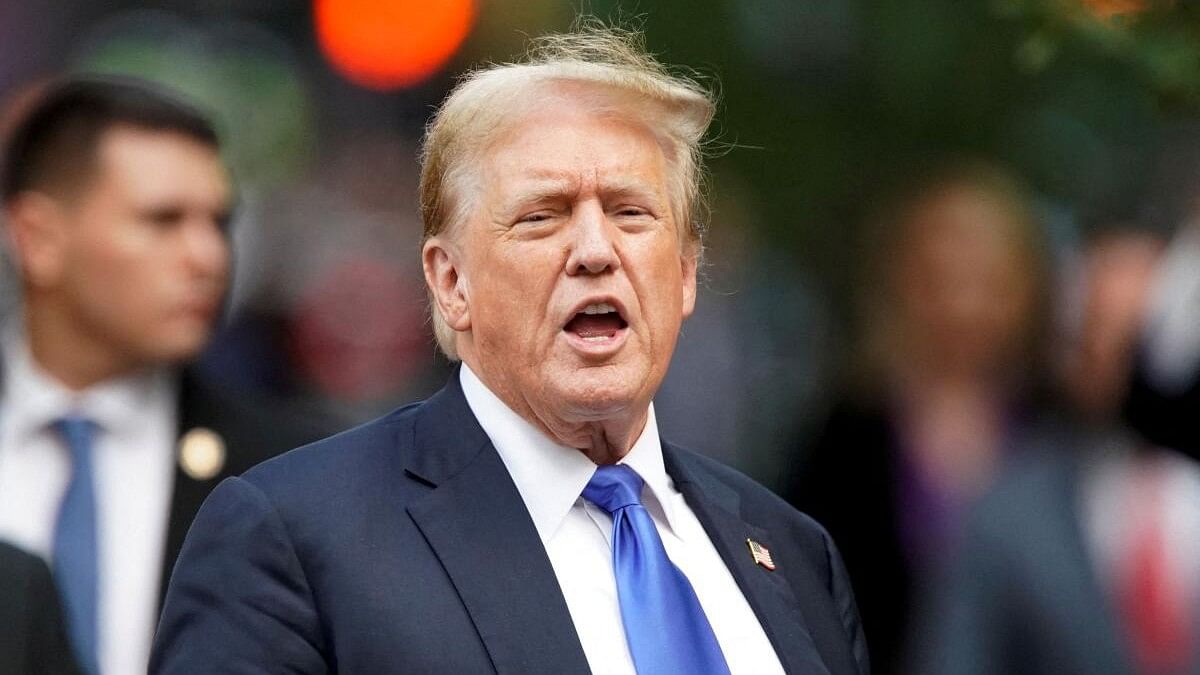
Former US President Donald Trump walks outside Trump Tower after the verdict in his criminal trial over charges that he falsified business records to conceal money paid to silence porn star Stormy Daniels in 2016, in New York City, US.
Credit: Reuters Photo
Donald Trump's foreign allies, from Hungary's Viktor Orban to Britain's Nigel Farage, rallied to his defence saying his trial was politically motivated, while others reacted cautiously, aware they may have to work with him as president again soon.
Trump, who has denied wrongdoing, said the trial, in which he became the first former US president convicted of a crime, had been rigged against him and that the "real verdict" would come when he runs for the presidency again in November.
"Solidarity and full support for @realDonaldTrump, victim of judicial harassment and a process of political nature," said Italy's Deputy Prime Minister Matteo Salvini, who heads the anti-immigrant League party.
Farage, a leading Brexit campaigner in Britain who has previously campaigned with Trump, said on X: "This verdict is a disgrace. Trump will now win big."
During his first term from 2017 to 2021, Trump repeatedly clashed with traditional allies, in Europe and beyond, over trade, defence spending and many other policies. The relationship was often uneasy, with old allies unsure how to deal with Trump.
If he won another term, Trump would likely install loyalists in key positions, allowing him more freedom to enact isolationist policies and enforce his foreign policy priorities, current and former aides and diplomats have said.
Trump himself has offered few clues about what kind of foreign policy he would pursue next time around, beyond broad claims like ending the Ukraine war in 24 hours or saying he would not want to protect NATO members from a future attack by Russia if those countries' contributions to the defence alliance were lagging - which worried traditional allies.
Possibly with that backdrop in mind and with sentencing and a likely appeal by Trump yet to come, many in Europe and elsewhere simply did not react publicly after the New York jury found him guilty of falsifying business records to cover up a hush-money payment to a porn star.
Special Relationship
The European Union's foreign policy arm declined to comment.
Those who did react were cautious.
"There's sentencing still to go and possible appeal, but we respect the court process," said British opposition leader Keir Starmer, whose Labour Party leads the polls ahead of an election in July.
"We have a special relationship with the US that transcends whoever the president is, but it is an unprecedented situation, no doubt about that."
Yorhimasa Hayashi, chief cabinet secretary in Japan said: "We would like to refrain from commenting on matters relating to judicial procedures in other countries.
"The Japanese government is not in a position to make comments with presumption about the impact on the (US) presidential election. In any event, we are closely monitoring related developments and will continue to gather information."
The Kremlin had no such qualms, saying Trump's guilty verdict showed that all legal and illegal means were being used in the United States to get rid of political rivals.
And some in the EU also made their support for Trump clear.
Hungarian Prime Minister Viktor Orban, whose own brand of nationalism and repeated clashes with partners isolates him in the EU, said: "Let the people make their verdict this November! Keep on fighting, Mr. President!"
Strategists from both major US parties, voter interviews and the Trump campaign have cast doubt on just how much a conviction could cost him at the polls. But in an election that could be decided in a handful of states, even minimal damage could have a big impact.